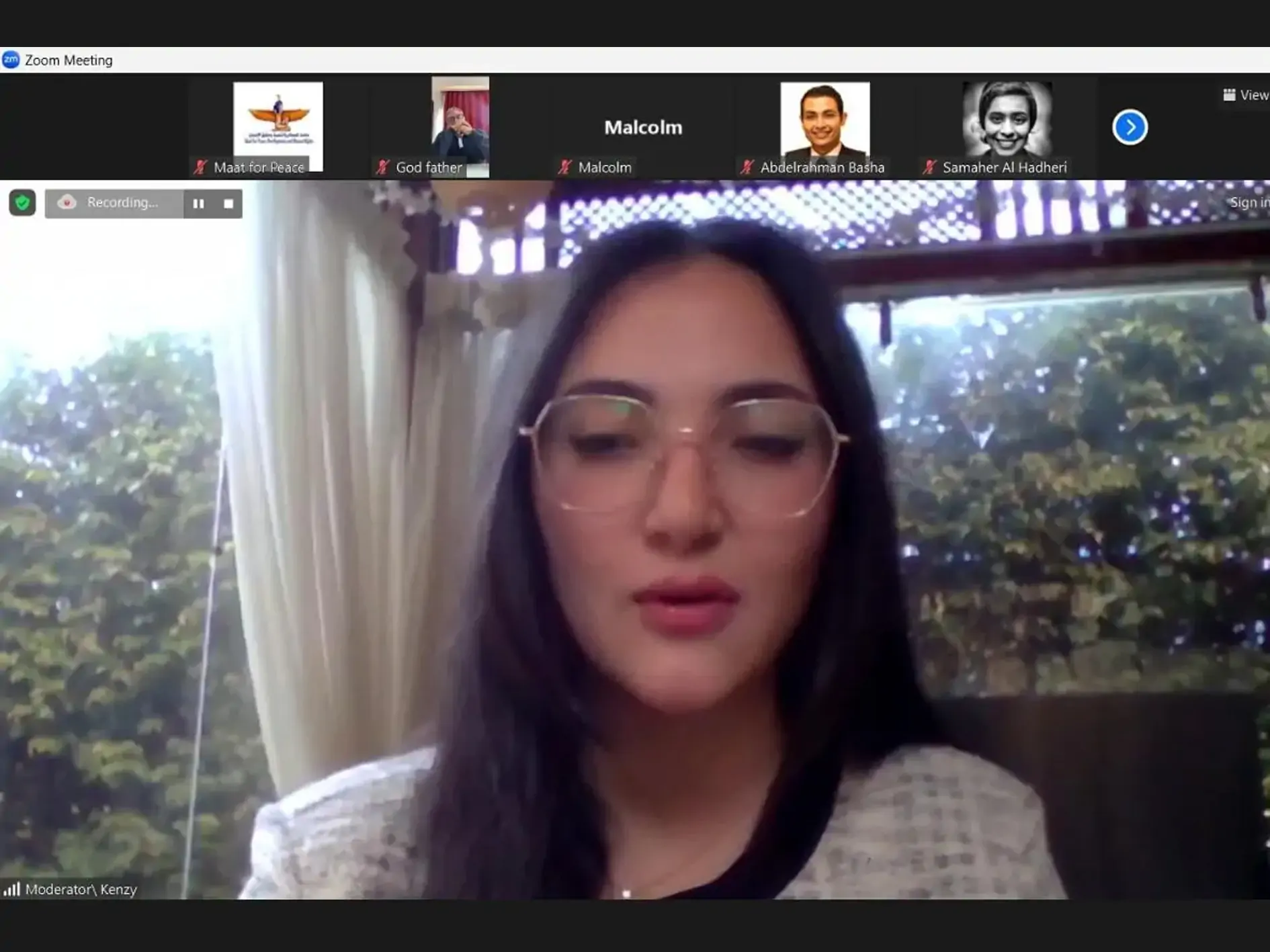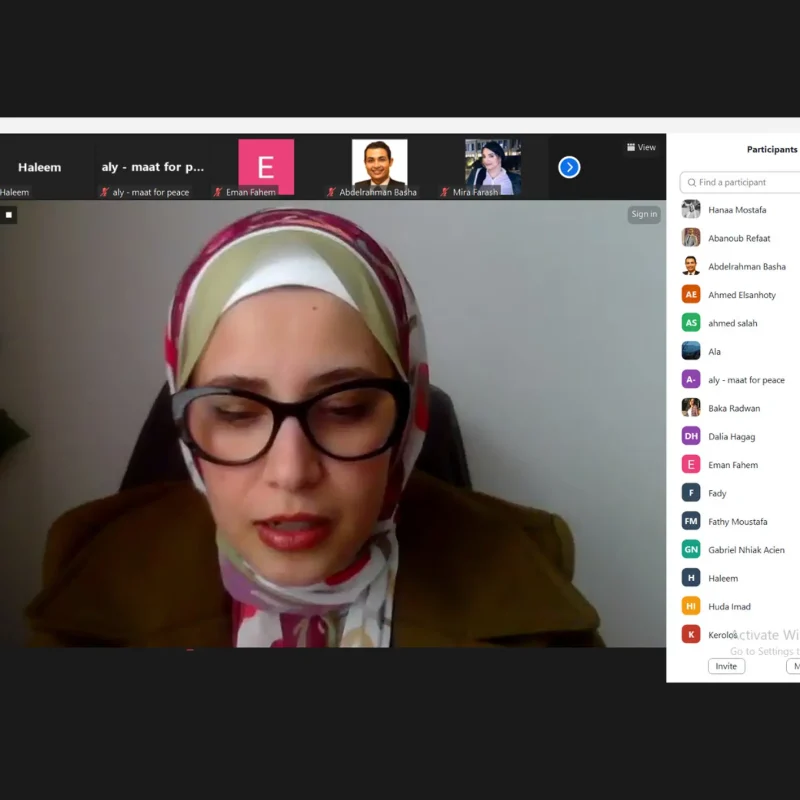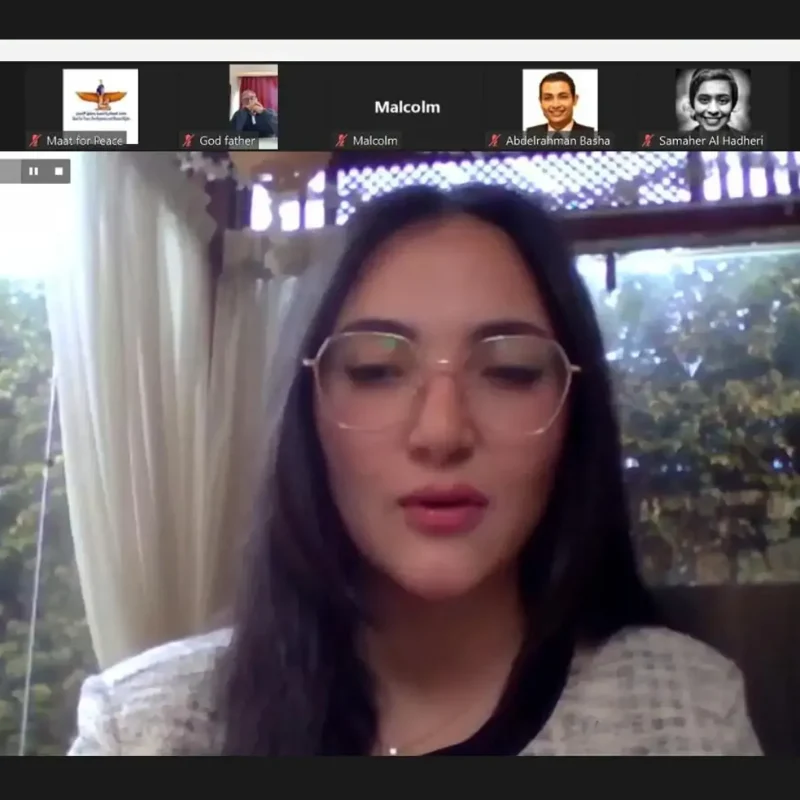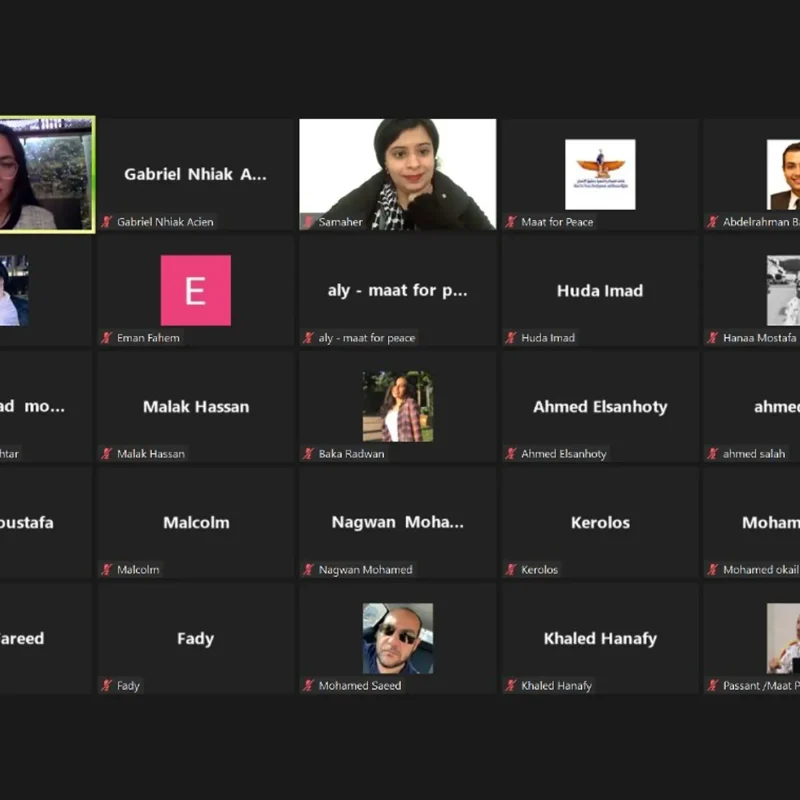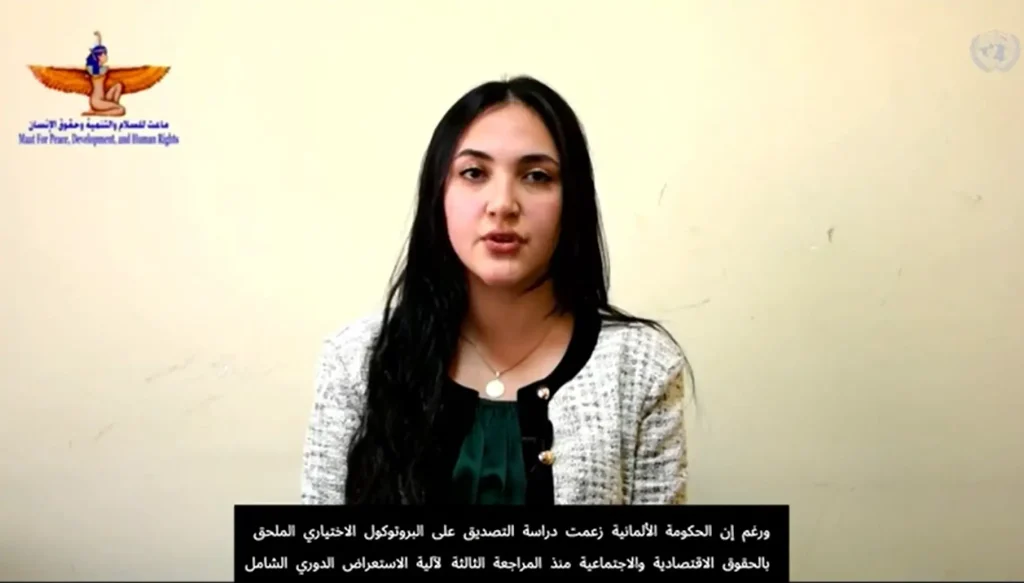Okeil: Saudi Arabia must open a dialogue with CSOs to enhance human rights situation there
Bidali: Attracting celebrities and football players cannot cover up the violations faced by migrant workers in Saudi Arabia
Al-Hadheri: Saudi authorities must integrate migrants into society
Jabr: Despite openness that the Kingdom is witnessing, women’s representation in political life remains limited
Yesterday, on Thursday, April 8, 2024, Maat for Peace, Development, and Human Rights organized a panel discussion during the fourth review of the Kingdom of Saudi Arabia as part of the Universal Periodic Review mechanism. The event took place on the sidelines of the 55th session of the Human Rights Council and was attended by a group of experts and human rights defenders, particularly those advocating for women's rights and the rights of migrant workers. The panel discussion included Ayman Okeil, an international human rights expert and Chairman of Maat; Malcolm Bidali, founder of Migrant Workers Rights Defenders Organization; Samaher al-Hadheri, a researcher in education and migration affairs; and Hana Sayed Jabr, a human rights activist and master's researcher at the University of Munich. The session was moderated by Kenzi Darwish, a researcher in the International Mechanisms Unit at Maat.
Panelists unanimously agreed that the human rights situation in the Kingdom of Saudi Arabia requires further steps and additional efforts, particularly in promoting women's rights and the rights of migrant workers. They emphasized the need for the Kingdom to engage in dialogue with local, regional, and international civil society organizations to implement the recommendations put forth during the fourth round of the Universal Periodic Review mechanism and to advance human rights more broadly.
Ayman Okeil, the international human rights expert and Chairman of Maat, provided insights into Saudi Arabia's position on international human rights mechanisms, both contractual and non-contractual. Okeil stated that Saudi Arabia has ratified 55.5% of international human rights agreements. Maat's analysis of the recommendations made to Saudi Arabia during the fourth review revealed that approximately 49 recommendations pertained to joining international human rights conventions and their optional protocols. Okeil also highlighted Saudi Arabia's delays in submitting reports to treaty committees, specifically the Committee against Torture and the Committee on the Rights of the Child. He noted that Saudi Arabia had responded to 72% of the reports submitted by United Nations special procedures. During the session reviewing Saudi Arabia's human rights record, Mrs. Hala Al-Tuwaijri expressed reservations about certain parts of the report prepared by the High Commissioner for Human Rights, particularly those related to child labor and the labor conditions of migrant workers. Okeil called for the Kingdom to engage in dialogue with local, regional, and international organizations to improve the human rights situation. He also urged Saudi Arabia to actively interact with treaty committees and promptly submit overdue reports to these committees.
In a similar context, Malcolm Bidali, founder of Migrant Workers Defenders Organization, emphasized that despite the Kingdom of Saudi Arabia's openness and recent social developments, as well as its appeal to celebrities and football players, these factors cannot cover up the violations faced by migrant workers in the country. He highlighted that Saudi Arabia still upholds the sponsorship system, which grants employers extensive powers and imposes numerous restrictions on the freedom of expression and movement of migrant workers. Workers are unable to leave the country without their employers' permission. Malcolm called for stakeholders in Saudi Arabia to collaborate to safeguard the rights of immigrants. He also suggested launching campaigns through international celebrities visiting the Kingdom to raise awareness about the rights of immigrants and shed light on their legal situation there.
In a similar vein, Samaher al-Hadheri, a researcher in education and migration affairs, advocated for Saudi Arabia to establish a comprehensive platform that enables immigrants to openly discuss the challenges they face daily. She also called for the inclusion of immigrants in society. Hana Sayed Jabr, a human rights activist and master's researcher at the University of Munich, further highlighted that although the Kingdom of Saudi Arabia permits women to hold leadership positions, these steps are insufficient. The laws introduced in favor of women in Saudi Arabia are incomplete, and the system of male guardianship still prevails in practice. The representation of women in the Shura Council and political life in general remains very limited. Hana urged Saudi Arabia to prioritize human rights over recreational activities and recommended the integration of civil society organizations within the country, providing them with a space for expressing their opinions.
Lastly, the speakers urged the Kingdom of Saudi Arabia to enhance its engagement with international mechanisms for protecting human rights. They also proposed launching campaigns through the celebrities that the Kingdom currently attracts to promote human rights. Additionally, they called for amendments to certain laws to abolish restrictions imposed on women in Saudi Arabia. The issue of the Bedoon was also noted by the audience, as Saudi Arabia continues to deny them citizenship and prevent them from traveling outside the Kingdom.


